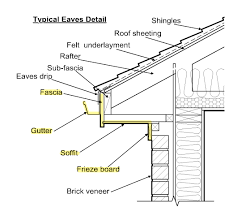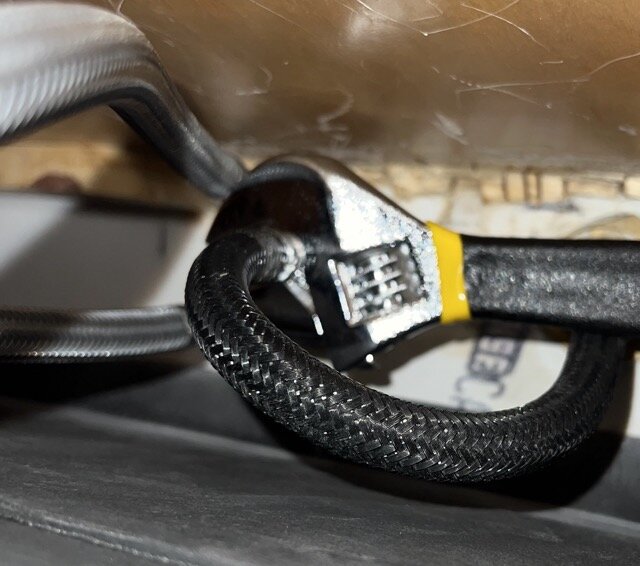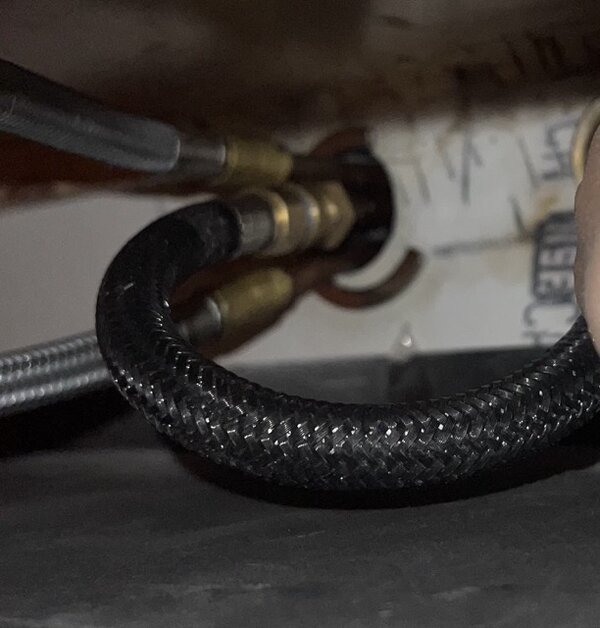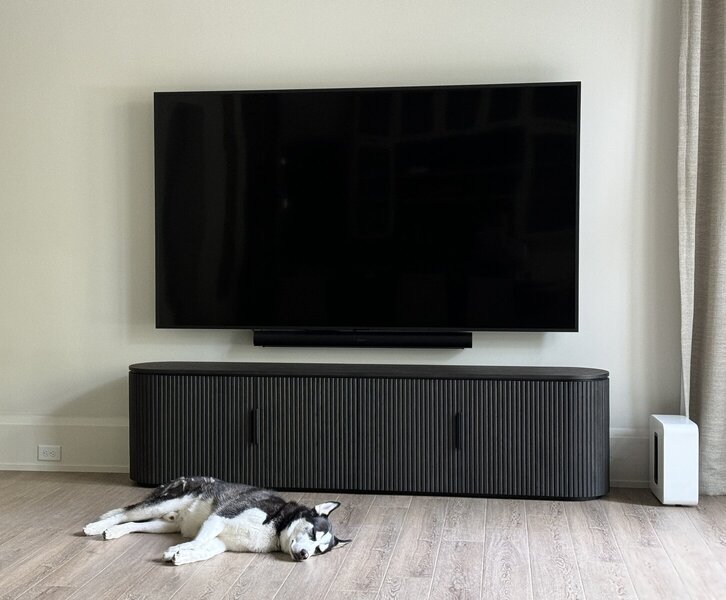Support the forum
Navigation
-
- Men's Style
- Classic Menswear
- Streetwear and Denim
- Preorders, Group Made-to-order, trunk shows, and o
- Menswear Advice
- Former Affiliate Vendor Threads; a Locked Forum.
- Career and job listings in fashion, mens clothing,
-
- American Trench
- AMIDÉ HADELIN
- Archibald London
- The Armoury
- Arterton
- Besnard
- Canoe Club
- Capra Leather
- Carmina
- Cavour
- Crush Store
- De Bonne Facture
- Drinkwater's Cambridge
- Drop93
- eHABERDASHER
- Enzo Custom
- Epaulet
- Exquisite Trimmings
- Fils Unique
- Gentlemen's Footwear
- Giin
- Grant Stone
- House of Huntington
- IsuiT
- John Elliott
- Jonathan Abel
- Kent Wang
- Kirby Allison
- Larimars Clothing
- Lazy Sun
- LuxeSwap
- Luxire Custom Clothing
- Nicks Boots
- No Man Walks Alone
- Passus shoes
- Pediwear
- Private & Co.
- Proper Cloth
- SARTORIALE
- SEH Kelly
- Self Edge
- Shop the Finest
- Skoaktiebolaget
- Spier and MacKay
- Standard and Strange
- Bespoke Shoemaker Szuba
- Taylor Stitch
- TLB Mallorca
- UNI/FORM LA
- Vanda Fine Clothing
- Von Amper
- Wrong Weather
- Yeossal
- Zam Barrett
Install the app
More options
-
Hi, I am the owner and main administrator of Styleforum. If you find the forum useful and fun, please help support it by buying through the posted links on the forum. Our main, very popular sales thread, where the latest and best sales are listed, are posted HERE
Purchases made through some of our links earns a commission for the forum and allows us to do the work of maintaining and improving it. Finally, thanks for being a part of this community. We realize that there are many choices today on the internet, and we have all of you to thank for making Styleforum the foremost destination for discussions of menswear. -
This site contains affiliate links for which Styleforum may be compensated.
-

Uniform/LA's latest collection of comfortable essentialls featuring clean cuts and subtle tones is now available. Our pick is this sky blue long sleeve tee sky blue long sleeved tee Check out the entire suite of new pieces in the collection here Uniform/LA is know for premium materials and meticulous pattern making. Support a small business built on quality and integrity.
-
STYLE. COMMUNITY. GREAT CLOTHING.
Bored of counting likes on social networks? At Styleforum, you’ll find rousing discussions that go beyond strings of emojis.
Click Here to join Styleforum's thousands of style enthusiasts today!
Styleforum is supported in part by commission earning affiliate links sitewide. Please support us by using them. You may learn more here.
You are using an out of date browser. It may not display this or other websites correctly.
You should upgrade or use an alternative browser.
You should upgrade or use an alternative browser.
The Home Ownership Thread
- Thread starter Douglas
- Start date
- Watchers 279
Piobaire
Not left of center?
- Joined
- Dec 5, 2006
- Messages
- 83,372
- Reaction score
- 67,852
What the **** is a dethatcher.
Manscaping tool.
otc
Stylish Dinosaur
- Joined
- Aug 15, 2008
- Messages
- 25,126
- Reaction score
- 20,358
To be fair, I didn't know about it until moving here either.What the **** is a dethatcher.
Maybe that's because I previously never had a lawn (other than my parents), but there might be regional differences as well...the common grass here has a different texture than I was used to in the upper midwest. More fine and spindly, more likely to go dormant in a dry summer, etc.
I'm just trying to make the lawn a little nicer for our upcoming child to crawl around on...fill it in a bit more and make it more "plush"
Omega Male
Stylish Dinosaur
- Joined
- May 30, 2013
- Messages
- 17,780
- Reaction score
- 41,025
Hero.
Omega Male
Stylish Dinosaur
- Joined
- May 30, 2013
- Messages
- 17,780
- Reaction score
- 41,025
Ramit has been beating this drum for a long time and has taken untold **** from the realtor-industrial complex. Can forgive him for dunking a little.
RedLantern
Distinguished Member
- Joined
- Apr 6, 2008
- Messages
- 5,211
- Reaction score
- 4,037
What exactly do we mean by "economic sense?" I understand that you can consider "housing" as a fungible commodity by comparing $/ft2 or bedrooms/bathrooms etc., but that's always going to be a rather reductive view of housing as ownership conveys a different bundle of rights. For a lot of people, renting is not a good substitute for ownership. IDK, I guess by pure microeconomic theory everyone is always doing whatever makes the best economic sense for them in any particular moment . . .
- Joined
- Nov 21, 2008
- Messages
- 30,387
- Reaction score
- 33,848
What exactly do we mean by "economic sense?" I understand that you can consider "housing" as a fungible commodity by comparing $/ft2 or bedrooms/bathrooms etc., but that's always going to be a rather reductive view of housing as ownership conveys a different bundle of rights. For a lot of people, renting is not a good substitute for ownership. IDK, I guess by pure microeconomic theory everyone is always doing whatever makes the best economic sense for them in any particular moment . . .
I strongly believe we overemphasize home ownership in this country.
I posted in another thread how the US has an extremely high migration rate relative to other countries. That can put people at a huge disadvantage (think single company towns or other dying towns).
We also train people that buying a house is an investment. It really isn't. It is normally a forced saving tool. At its best, people get lucky and are able to sell at a large gain because they bought in a rapidly appreciating area. At worst, it is a money trap.
The problem is that people typically move every 7 years or so. Most people who see that appreciation sell to upgrade. Problem is that upgrade also appreciated over time, so they're probably no better off financially.
People also just don't count all the not-so hidden costs of ownership, and they can't wrap their heads around compound growth. As an example, the house we are currently buying is 13x the price it was the last time it was sold (and if it had been sold 4 years ago, it probably would have sold for half that). That only works out to 5.5% in nominal growth and <2% in real growth. The real annualized return on the S&P 500 over the same period was 8%.
Renting is likely in a lot of people's economic best interests. I say this as someone who, as I posted recently, that I'm going to be building a custom home. It feels like a completely dumb financial move, but we're going in viewing it as consumption not investment.
- Joined
- Dec 10, 2010
- Messages
- 25,175
- Reaction score
- 36,515
I think your broader point is correct, but it is important to note that the difference in the rate of return is only negatively relevant to the delta between the cost of rent and the mortgage/insurance/maintenance. It is positively irrelevant for the homeowner on the cost of rent which has no rate of return.I strongly believe we overemphasize home ownership in this country.
I posted in another thread how the US has an extremely high migration rate relative to other countries. That can put people at a huge disadvantage (think single company towns or other dying towns).
We also train people that buying a house is an investment. It really isn't. It is normally a forced saving tool. At its best, people get lucky and are able to sell at a large gain because they bought in a rapidly appreciating area. At worst, it is a money trap.
The problem is that people typically move every 7 years or so. Most people who see that appreciation sell to upgrade. Problem is that upgrade also appreciated over time, so they're probably no better off financially.
People also just don't count all the not-so hidden costs of ownership, and they can't wrap their heads around compound growth. As an example, the house we are currently buying is 13x the price it was the last time it was sold (and if it had been sold 4 years ago, it probably would have sold for half that). That only works out to 5.5% in nominal growth and <2% in real growth. The real annualized return on the S&P 500 over the same period was 8%.
Renting is likely in a lot of people's economic best interests. I say this as someone who, as I posted recently, that I'm going to be building a custom home. It feels like a completely dumb financial move, but we're going in viewing it as consumption not investment.
- Joined
- Mar 8, 2012
- Messages
- 22,433
- Reaction score
- 44,000
If your mortgage payment is roughly the same as your rent payment would be, I’d still say you’re better off in the long run buying, especially if you’re going to stay put for more than a few years. You’ll get something back when you sell, unless home prices tank.
This might be impossible right now with 9% interest rates…
This might be impossible right now with 9% interest rates…
- Joined
- Nov 21, 2008
- Messages
- 30,387
- Reaction score
- 33,848
I think your broader point is correct, but it is important to note that the difference in the rate of return is only negatively relevant to the delta between the cost of rent and the mortgage/insurance/maintenance. It is positively irrelevant for the homeowner on the cost of rent which has no rate of return.
A mortgage is a good hedge against inflation certainly, and if you are like the people who owned the house I'm buying. It is a good move. Lock in a payment for 30 years (except for crazy Cook County property tax).
If your mortgage payment is roughly the same as your rent payment would be, I’d still say you’re better off in the long run buying, especially if you’re going to stay put for more than a few years. You’ll get something back when you sell, unless home prices tank.
This might be impossible right now with 9% interest rates…
Where are rates 9%? Everything I'm seeing is 7% or under.
- Joined
- Mar 8, 2012
- Messages
- 22,433
- Reaction score
- 44,000
A mortgage is a good hedge against inflation certainly, and if you are like the people who owned the house I'm buying. It is a good move. Lock in a payment for 30 years (except for crazy Cook County property tax).
Where are rates 9%? Everything I'm seeing is 7% or under.
The 9% thing my just be for a shorter term all in one loan.
Money sitting in the account reduces interest. We might be paying 9%, but only on around 30% of the principal of the loan.
And when interest rates on fixed loans get reasonable, we can refi.
Piobaire
Not left of center?
- Joined
- Dec 5, 2006
- Messages
- 83,372
- Reaction score
- 67,852
The 9% thing my just be for a shorter term all in one loan.
Money sitting in the account reduces interest. We might be paying 9%, but only on around 30% of the principal of the loan.
And when interest rates on fixed loans get reasonable, we can refi.
So you've got 70% of the mortgage either paid off or sitting in cash? What sort of interest rate are you getting on that cash? I mean, SPY is up 11% YTD so just saying.
- Joined
- Nov 24, 2014
- Messages
- 18,272
- Reaction score
- 18,528
So you've got 70% of the mortgage either paid off or sitting in cash? What sort of interest rate are you getting on that cash? I mean, SPY is up 11% YTD so just saying.
if it's in home equity they're getting 9% plus whatever the ROI on the mortgage turns out to be when they sell .
assuming they had minimized the down to maximize stock contributions they'd be paying 9% to get 11% . in that sense SPY is up 2% just saying .
no ?
Piobaire
Not left of center?
- Joined
- Dec 5, 2006
- Messages
- 83,372
- Reaction score
- 67,852
if it's in home equity they're getting 9% plus whatever the ROI on the mortgage turns out to be when they sell .
assuming they had minimized the down to maximize stock contributions they'd be paying 9% to get 11% . in that sense SPY is up 2% just saying .
no ?
I'm not as smart as you are. Can you break that out for me a little cleaner? Who's paying them that 9% on the home equity, for instance?
Also, that YTD on SPY is just 4.5 months whereas that 9% is per annum?
idk...help me out here...i need help with the maths
- Joined
- Nov 24, 2014
- Messages
- 18,272
- Reaction score
- 18,528
I'm not as smart as you are. Can you break that out for me a little cleaner? Who's paying them that 9% on the home equity, for instance?
Also, that YTD on SPY is just 4.5 months whereas that 9% is per annum?
idk...help me out here...i need help with the maths
you are suggesting that SPY will perform ~30% annualized ? ok . let's help you out .
firstly , it's not a math thing . you do realize that money is not fungible over time ? that's what the concept of time-value-of-money is really about . today's dollar is not tomorrow's dollar etc . let's begin :
the market is paying 9% for mortgages , that's tomorrow's money .
if I have today's cash ( like fueco ) I can forego 9% in mortgage interest . so who is paying me ? the market is paying me , that is what is bought with the down payment . otherwise my *cash* is costing 9% out the door ( this is the very point that you were making I think ? ) .
anyways , let's consider the value of the asset that we are paying for in these same terms . iow if we put down a large portion of the purchase price , we are then in this example foregoing 10.35% annualized ETF return ( that's the SPY average ) for 9% back over the mortgage term in foregone interest .
now we are hunting 1.5 or 2% or better for our asset over the remainder of the mortgage to come out even , that's the stream of money that we have given up other opportunity for . that's really what is being discussed here . if you can't grok the idea of the market giving 9% on a down payment I can't help you . it's market terms .
and imho @Fueco is right ; when the fed decides that money is expensive enough they will relieve rates and there will be an opportunity to renew terms . in the meantime , he's made 9% on his down payment . to me , dollars well spent . ymmv .
the same is true if you had gone the other way and chased the ETF . let's say that that happened , you paid 9% on the mortgage and got 11% or whatever in the market . so your money is making 2% ( i'll edit here : and now what @Piobaire ? ) and you've minimized your stake in your home .
***
we bought our first place 5 years ago ( 2019 if my maths are right ) and got a screaming price ( basically got a 2nd tier home for an entry level price ) and then refi'd at a screaming rate .
today's market rent for this place would be ~25% more than yesterday's mortgage + insurance ( I live in a college town , rental value is very much a baseline ) . I feel pretty good about beating the mortgage terms as an investment in this place and it's developable in terms of both use and capital investment . I would not choose to rent .
Last edited:
FEATURED PRODUCTS
-
Larimars - Handmade Made-to-Measure Shirts - $182 Canclini Piave Cotton Shirt.
-
 Private White VC - Navy Cinchwaist Field Coat Made in Manchester, England.
Private White VC - Navy Cinchwaist Field Coat Made in Manchester, England. -
 No Man Walks Alone - Extra 20% off SALE Use code HALLOWEEN for 20% off any item in this section
No Man Walks Alone - Extra 20% off SALE Use code HALLOWEEN for 20% off any item in this section -
 The Armoury by Ring Jacket - Wool Chalk Stripe Suit - $1,900 Made from medium-weight wool from Dormeuil.
The Armoury by Ring Jacket - Wool Chalk Stripe Suit - $1,900 Made from medium-weight wool from Dormeuil. -
Nicks x Parkhurst V3 - $619 Parkhurst's iconic 602 last on Nicks' classic stitchdown construction.
-
ISAIA NAPOLI “Aquaspider” Blue Hand-Sewn Suit SALE - Handmade in Italy.
Latest posts
- Replies
- 7,677
- Views
- 714,175
- Replies
- 77,529
- Views
- 11,203,130
- Replies
- 23,653
- Views
- 1,661,498
- Replies
- 56,416
- Views
- 12,818,598
- Replies
- 4,856
- Views
- 1,002,389
Featured Sponsor
Forum Sponsors
- American Trench
- AMIDÉ HADELIN
- Archibald London
- The Armoury
- Arterton
- Besnard
- Canoe Club
- Capra Leather
- Carmina
- Cavour
- Crush Store
- De Bonne Facture
- Drinkwater's Cambridge
- Drop93
- eHABERDASHER
- Enzo Custom
- Epaulet
- Exquisite Trimmings
- Fils Unique
- Gentlemen's Footwear
- Giin
- Grant Stone
- House of Huntington
- IsuiT
- John Elliott
- Jonathan Abel
- Kent Wang
- Kirby Allison
- Larimars Clothing
- Lazy Sun
- LuxeSwap
- Luxire Custom Clothing
- Nicks Boots
- No Man Walks Alone
- Passus shoes
- Pediwear
- Private & Co.
- Proper Cloth
- SARTORIALE
- SEH Kelly
- Self Edge
- Shop the Finest
- Skoaktiebolaget
- Spier and MacKay
- Standard and Strange
- Bespoke Shoemaker Szuba
- Taylor Stitch
- TLB Mallorca
- UNI/FORM LA
- Vanda Fine Clothing
- Von Amper
- Wrong Weather
- Yeossal
- Zam Barrett
Members online
- blewnote1
- thuhoan
- prof.contingency
- Encore
- Lucky Strike
- ktourlas99
- dukeaw
- minhiub
- tactical_milk
- TomasM
- Jr Mouse
- Hombre Secreto
- JayDotz
- sundrup
- jmiller123
- allthingspolo
- Salem Saberhagen
- MajorDash
- asewonder
- zippyh
- KevM
- oronimbus
- Epaulet
- LeoFresko
- alexbowles
- Mariokartfever
- Fenderplyr
- williamthurman
- wholesomemolson
- lockstock
- nqtri
- C_kimlin920
- viksit
- zachthespook
- Ypuh
- colton2e
- Viatu
- Lovable Brogue
- barutanseijin
- TinyEli
- trusheerush
- asaa1000
- MJMcRibb
- WaIIace
- RamiJ
- LinePlaneVolume
- Claghorn
- aristoi bcn
- Alternate
- An Acute Style
Total: 1,516 (members: 98, guests: 1,418)





























